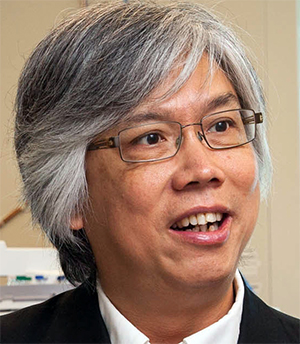Promoting food security in Nunavut
Dr. Laurie Chan, Professor of Biology and Canada Research Chair in Toxicology at the University of Ottawa
Dr. Mélanie Lemire, Assistant Professor of Social and Preventative Medicine at Laval University and Nasivik Research Chair for Ecosystem Approaches to Northern Health

Dr. Laurie Chan

Dr. Mélanie Lemire
Climate change is having an increased impact on the availability, quality, and ability to access several wildlife species in the coastal region of Qikiqtarjuaq, Nunavut. How are these changes affecting the traditional diet, food security, and health of local Inuit?
Over the last three decades, in partnership with the Qikiqtarjuaq community, Drs. Laurie Chan and Mélanie Lemire determined that many local marine mammals and fish contaminated with industrial chemicals from the south (such as polychlorinated biphenyls and mercury) were a preferred food source for Inuit residents. With the help of ecology researchers from Canada and France, Dr. Lemire and CIHR Banting Fellow Dr. Tiff-Annie Kenny have also been documenting how climate change is affecting marine ecosystems near Qikiqtarjuaq, as well as the ability of local Inuit to access various marine species.
Thanks to collaborative workshops with Inuit leaders and Elders, public health representatives from the Government of Nunavut, and local hunters and trappers, Drs. Chan, Lemire, and Kenny are now studying the consequences of socio-environmental changes on the current diet, culture, and overall health of Inuit in Qikiqtarjuaq. This will lead to the development of joint strategies to improve food security.
“The partnership and mutual learning that occurs between researchers and the Qikiqtarjuaq community is critical,” said Dr. Chan. “Through this collaborative research, we are gaining a better understanding of how the community’s diet has changed over time. This knowledge will allow the community to develop sustainable strategies for acquiring healthy food and adapting to challenges such as climate change.”
- Date modified: